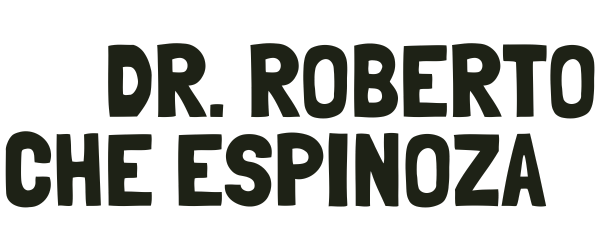
An Open Letter to Activists
Many people write to me asking for advice in facing specific problems in their communities. I’m simply not able to respond to every query. I drafted this letter to help mitigate this obstacle. I offer my best guidance and general philosophy for doing this work to those struggling against harm. - Dr. Roberto
Dear Comrade in the Struggle:
I am humbled that you have arrived at this page and I hope you read the entirety of this open letter.
Periodically, I receive emails and direct messages on various social media platforms from activists around the world asking how to respond to a pressing social concern in their local context. I read every query that comes in and attempt to respond to as many as I can, but I am not able to respond to them all. Over time, I’ve learned that what I am able to do is plant seeds with others.
I do not offer solutions to other people’s issues or give a direct response to the query that I receive. I endeavor to acknowledge receipt of the message and then steward relationality in the act of planting seeds. I do this in a variety of ways and will continue to do this for as long as I’m able.
Following my teachers and mentors, I endeavor to remain rooted in my local context, while also recognizing that I am a global citizen. I know the world palpitates for transformation at every beat of her heart. In the spirit of nonviolent struggle and nonviolent resistance, I seek to be in deep solidarity with others as many of us are facing similar struggles, though our contexts don’t match.
I encourage activists from all over the world to remain true to their context and build coalitions of difference that then create conditions for ethical futures. I encourage activists to plant seeds for communities of resistance so that there is a multiplicity of persons struggling in harmony. We must relate in ways that are harm-reducing in the face of manifold harm-producing events. I do not believe I have the answers for another context, but I can hear the cries of the world. I know that together we can make a way out of no-way through nonviolent resistance and struggling for another possible world.
I write on Substack often and post on Instagram and Facebook as well. I invite people into the act of curiosity and the process of becoming. I try to be a model of becoming, and steward anti-mimetic desire in the face of accelerated versions of neocolonial mimesis. I try to plant seeds poco a poco every chance I get.
My teacher taught me many years ago that I should be “faithful in the small things.” Two decades later, I am still attempting to do that by making little moves against destructiveness, which she also taught me and continues to teach me. In that spirit, I do not give advice on other people’s context. Again, I plant seeds and endeavor to enact change in my local context in the United States. Though I am invited to participate in convenings abroad, I always work to make my comments specific, relative to my own commitments, my own contexts, and my own story.
While many of us are struggling to make social change on a macro scale, I find that I am at my best when I am able to make relationships with people, learn from others, and remain in dialogue that helps create conditions for ethical futures for all.
I am committed to another possible world. As a philosophical theologian and ethicist, I use a multi-disciplinary / counter-disciplinary / anti-disciplinary approach to the act of thinking and theorizing. I encourage others to think critically about their pressing social concerns and I try to model that same commitment to critical thinking by being in relationship with others across lines of difference. In my opinion, we need a generative framework/schema for a theology and ethic of friendship in these days.
As we are each living at the end of empire in a neocolonial and global capitalistic world during what seems to be the emergence of a 4th industrial revolution, we must root into generative acts of relationality, so that we can be tethered to belonging and freedom as we endeavor to make little moves against destructiveness. This is the work of becoming, which I understand as radical transformation.
In solidarity, —Dr. Roberto Che Espinoza.

